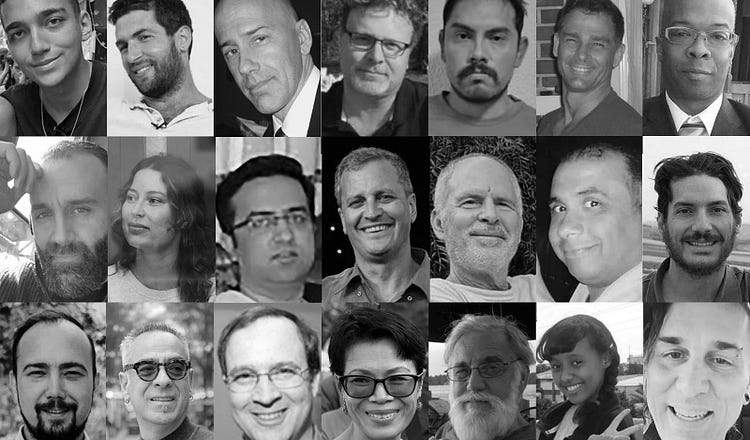
In August 2021, with summer coming to a close, then–60-year-old Marc Fogel left his family home in Pennsylvania and flew to Russia. The husband and father of two had worked abroad as a high school history teacher for 35 years, and he was looking forward to his final year at the Anglo-American School in Moscow before retirement. But he never arrived.
For the last 30 years, Fogel has suffered from chronic back pain. He’s had three back surgeries, knee surgeries, a rotator cuff surgery, and a hip replacement, none of which have provided relief. In July 2020, Elizabeth Spaar, Fogel’s family doctor in Pennsylvania, prescribed him marijuana as an alternative to opioids. Fogel took the medication with him to Russia. He planned to declare it along with the proper documentation, but didn’t get the chance.
After landing at Sheremetyevo International Airport, Russian authorities were waiting for him. His lawyers believe they had been tipped off by a former employee at the now-defunct school.
Fogel was charged with possessing and smuggling 17 grams (less than an ounce) of marijuana, a misdemeanor in most parts of the U.S. where cannabis isn’t yet legal. At the advice of his Russian counsel, he pleaded guilty, hoping the judge would show him leniency. Instead, in June 2022 a Moscow court sentenced him to 14 years in a maximum security penal colony—IK-2, in the Yaroslavl region, where he’s been ever since.
It’s “a death sentence,” Sasha Phillips, his family’s lawyer, told me. “There is no doubt in our minds that the Russian government was preparing him as a hostage pawn, in the hopes of getting somebody back that they had wanted,” Phillips said.
Fogel’s health has deteriorated and Dr. Daniel Steiner, another one of his physicians in Pennsylvania, warned that “his current circumstances,” incarcerated and lacking specialized medical care, “will lead to permanent dysfunction, disability, and/or death.”
Unfortunately, Fogel has stepped into a nightmare that dozens of other Americans are living across the world: Detained abroad for years, not because of what they’ve done, but because of where they’re from. And many are left wondering how to get more help from their own government.
Just this past Thanksgiving, that nightmare came to an end for three Americans who had been detained by China. Released in a prisoner swap were John Leung, an FBI informant detained in 2021; Kai Li, a New Yorker detained since 2016; and Mark Swidan, a businessman held on false charges since 2012.
But Fogel, along with many others, is facing another Christmas in the gulag. And there’s no saying how many more holidays they’ll spend there.
It’s surprisingly difficult to pin down an exact number of Americans in this situation. The U.S. government doesn’t publish a list, and not every family seeks publicity. (The Free Press has compiled a list of publicly identified detained Americans below.)
Even the terms used can be squishy. “Detention” can cover a variety of circumstances, including exit bans in which people are prevented from leaving a country but free to move within it. And “wrongful detention” doesn’t always mean the person is innocent. It could mean they’ve received a disproportionate sentence or are being held primarily for political leverage.
China and Russia account for just over half of the current wrongful-detention cases of U.S. nationals, according to the James W. Foley Legacy Foundation. The organization, named after an American freelance journalist abducted by ISIS in 2012 and executed two years later, estimates that 34 Americans are being held hostage or wrongfully detained across 16 countries by either non-state or governmental actors, although some of them are not publicly identified.
The Dui Hua Foundation, a U.S.-based human-rights group, estimates that in China alone there are at least 200 Americans held under coercive measures, a catchall term that includes arrests, residential surveillance, exit bans, and both pre- and post-trial detention.
Fogel’s case is about as clear-cut as it gets. And because of that, his family has managed to capture some public sympathy. In December 2023, both of Pennsylvania’s senators, John Fetterman and Bob Casey, as well as 13 House members, wrote to Secretary of State Antony Blinken, asking that Fogel “be included in any discussion involving other Americans wrongfully detained in Russia.” On August 1, National Security Adviser Jake Sullivan described Fogel as “wrongfully detained” at a press conference.
Yet despite his friends in high places, Fogel remains in limbo, as do dozens of others who have no one but family to advocate for them.



